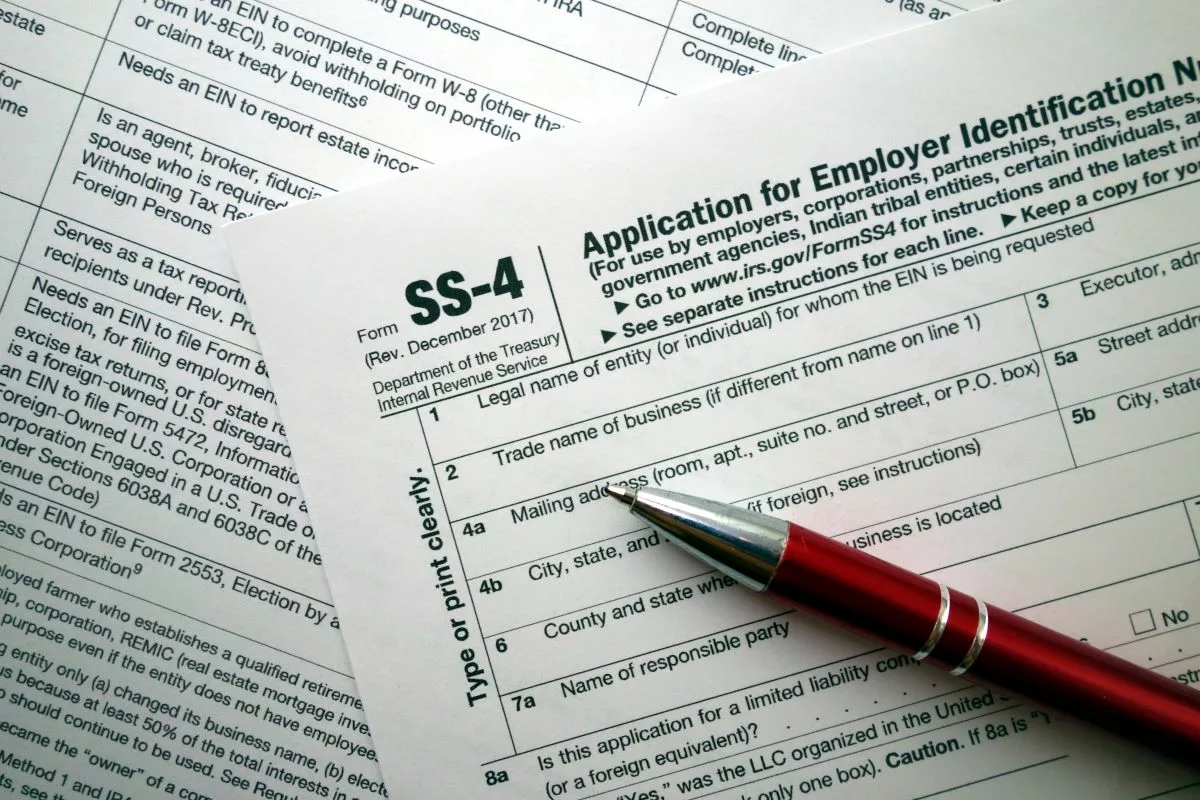If you’re a US citizen or a resident, you may already be familiar with Taxpayer Identification Numbers, commonly known as TINs. These unique identifiers play a crucial role in facilitating smooth tax administration while ensuring compliance with tax regulations. The Internal Revenue Service (IRS) offers various types of TINs specifically designed for US citizens and permanent residents.
In this article, we will guide you through the essentials of Tax Identification Numbers, their significance, and the step-by-step application process. By obtaining a TIN, you can effectively meet your tax obligations while adhering to the laws governing taxation in the United States.

What Is a Taxpayer Identification Number?
A Taxpayer Identification Number is a unique numerical identifier assigned to entities or individuals by the Internal Revenue Service (IRS) for tax purposes. It’s a vital component of the tax system and is used by the IRS to track and administer taxes.
A valid tax ID is essential for individuals and entities to meet their tax obligations, file tax returns, and engage in tax reporting. It also ensures accurate identification and tax administration.
Types of TINs
There are several types of Tax Identification Numbers issued by the IRS. They include:
ITINs are only used for tax reporting purposes and do not grant eligibility for Social Security benefits.
Scope of TINs
The general scope of TINs covers the following:
- Personal Identification. TINs, such as the Social Security Number (SSN) or Individual Taxpayer Identification Number (ITIN), serve as personal identification numbers for individuals. They establish an individual’s tax identity and are used in various tax-related transactions.
- Tax Filing and Reporting. Individuals use their SSN or ITIN, while businesses and other entities use an Employer Identification Number (EIN) to report income, claim deductions, and fulfill their tax obligations.
- Tracking Taxpayer Activity. TINs enable the government, specifically the Internal Revenue Service (IRS), to track and monitor taxpayer activities.
- Fraud Prevention. TINs play a role in preventing tax fraud. They help detect and prevent identity theft and fraudulent tax filings by verifying the accuracy of taxpayer information.
- Financial Transactions. TINs are often required for various financial transactions, such as opening bank accounts, applying for loans, or conducting business activities.
Who Needs a Taxpayer Identification Number?
Tax Identification Numbers (TINs) are needed by the following:
- Individuals, including US citizens and permanent residents
- Non-resident aliens
- Businesses and entities
- Tax return preparers
How To Get Your TIN
The application for obtaining your TIN online or offline depends on the specific type of TIN you need.
- SSN. You will need to fill out and complete Form SS-5 (Application for a Social Security Card). Visit the nearest local Social Security office and file the form. You can also call 800-772-1213 for inquiries
- EIN. You can apply for EIN online by visiting the IRS website. You can also apply via fax, filling out and submitting Form SS-4 to 855-641-6935. Alternatively, you can apply through the mail by submitting Form SS-4 to the following:
EIN Operation
Cincinnati, OH 45999.
International applicants can call the toll-free number 267-941-1099 between 6 am and 11 pm (EST)
- ITIN. To apply for an ITIN number, you must complete Form W-7 (IRS Application for Individual Taxpayer Identification Number) and submit it to the address in the form. You can submit it at any IRS walk-in office
- ATIN. To apply for ATIN, download and fill out Form W-7 A (Application for Taxpayer Identification Number for Pending US Adoptions). Submit it to the address on the form or any IRS walk-in office
- PTIN. You can obtain your PTIN online. You will pay a $30.75 application fee which is non-refundable. However, you can also obtain it physically by downloading and filling out Form W-12 (IRS Paid Preparer Tax Identification Number (PTIN) Application) and paying the same application fees. You will submit the form to the following address:
IRS Tax Pro PTIN Processing Center
PO Box 380638
San Antonio, TX 78268
Documentation Needed
You will provide the following documents when applying for any of the TINs:
- Proof of identity
- Proof of citizenship or immigration status
- Proof of tax requirement
- Business information for EIN
- Adoption-related documents for ATIN
Average Processing Time
The average processing time for Taxpayer Identification Numbers (TINs) can vary depending on the TIN type, application volume, or additional review. Some TINs can be approved within 10 days, while others can take up to 12 weeks.
Costs of the Taxpayer Identification Numbers
There are no application fees for SSNs, ATINs, ITINs, and EINs. However, you must pay $30.75 for first and renewal applications for PTINs.
Validity of TINs
There are different validity periods depending on the type of TIN:
- SSNs do not expire, as they remain valid throughout a person’s lifetime
- ITINs issued after January 1, 2013, remain valid indefinitely
- EINs do not expire. They remain valid as long as the business or entity fulfills their tax obligations
- PTINs must be renewed annually
- ATINs expire after 2 years from the date of issuance, as they are meant to be temporary
Maximize Your Tax Benefits
Taxpayer Identification Numbers (TINs) play a vital role in the US tax system, serving as essential tools for individuals and entities alike. There are different types of TINs, such as SSNs, ITINs, PTINs, ATINs, and EINs, each serving a specific purpose and catering to different taxpayer categories.
TIN numbers enable individuals and entities to accurately report their income, claim deductions, and meet various requirements imposed by the tax authorities. By ensuring that they have the appropriate TIN and understanding its purpose, taxpayers can confidently navigate the complex tax landscape and fulfill their responsibilities under US tax laws.





